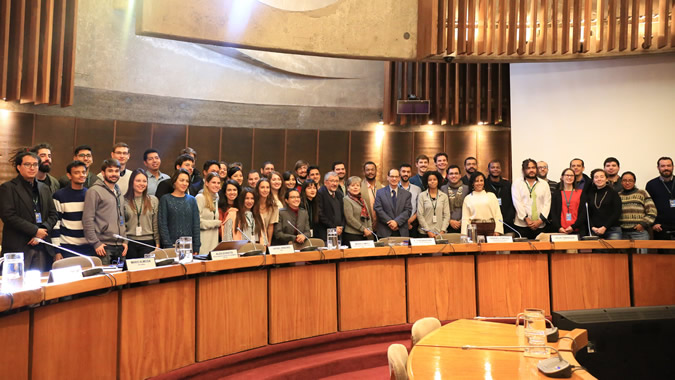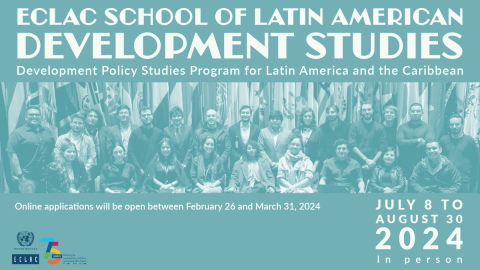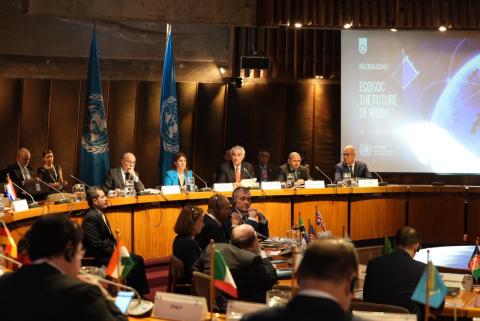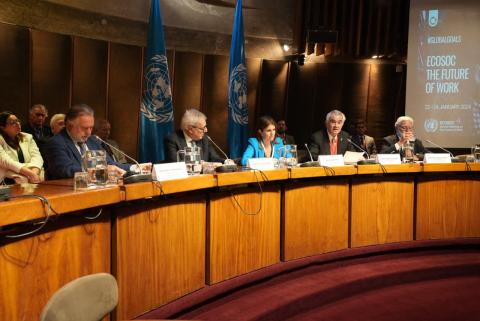Alicia Bárcena, Executive Secretary of the Economic Commission for Latin America and the Caribbean (ECLAC), issued an invitation to think about a new, more sustainable and egalitarian development style for the region to students at the regional UN organization’s Summer School on Latin American Economies.
“This summer program is not just a course on economics. It is a school of political economics, because ECLAC is a think-tank and we have placed our bets on development theories as pioneers in research methodologies and techniques, but also for our constant questioning of the development model, inequality, the traditional economy. This is our task,” sustained the high official in the opening seminar for the program.
During her remarks, Bárcena referred to current international trends: from the long and uncertain Brexit process in Europe to the commercial, technological and military tensions between China and the United States, touching on the difficulties of implementing the Paris Climate Agreement, global economic and commercial slowdown, the globalization backlash and the weakening of multilateralism.
“ECLAC has continued to argue that the predominance of neoliberal coalitions has led to social, economic and environmental imbalances. And these imbalances are putting the stability of the international system in jeopardy,” underscored Bárcena, who called on students to focus on the structural gaps in the way of progress in the region, especially technological and productive gaps.
Bárcena gave a recap of ECLAC’s thinking over the past decade, starting with the publication of Time for equality: closing gaps, opening trails in 2010 that the institution has maintained until the publication in 2018 of its latest reflection, The Inefficiency of Inequality, she said.
Finally, she mentioned the environmental big push proposed by ECLAC to transition toward a more environmentally sustainable and socially inclusive style of development.
In this edition of the Summer School – currently going on from July 15 through September 30 – there are 40 students from 19 countries participating: Argentina, Bolivia, Brazil, Chile, Colombia, Ecuador, El Salvador, France, Germany, Guatemala, Honduras, India, Italy, Mexico, Nicaragua, Spain, UK, Uruguay and Venezuela.
Some of the reasons students mentioned for participating at the beginning of the program included the opportunity to exchange knowledge and experiences with academics and other students, learn more about the structuralist approach and ECLAC’s thinking in the current era of hyper-globalization, and addressing the challenges and common problems of the countries of Latin America and the Caribbean.
Also participating in the opening seminar, which wraps up on Tuesday, July 30, were ECLAC Deputy Executive Secretary Mario Cimoli, and the Summer School Coordinator Gabriel Porcile, as well as representatives from the Institute for New Economic Thinking (INET), which is collaborating on the course.
The event also includes two master classes by Alex Izurieta, Senior Economic Affairs Officer for the United Nations Conference on Trade and Development (UNCTAD), and presentations by former students of the Summer School.




